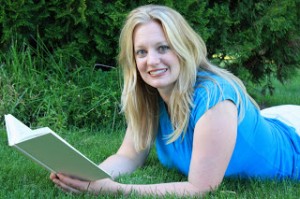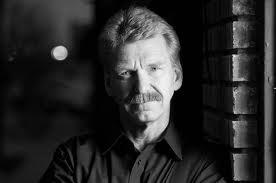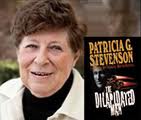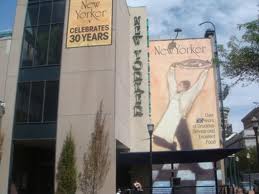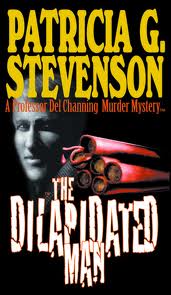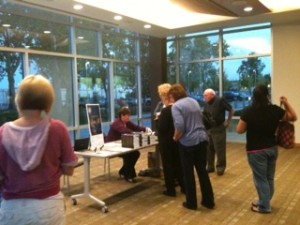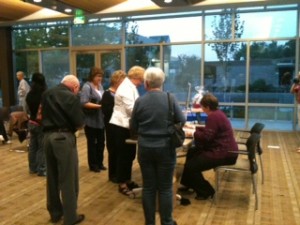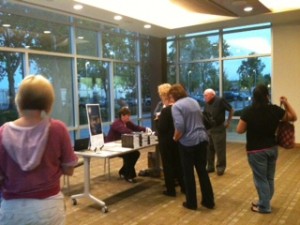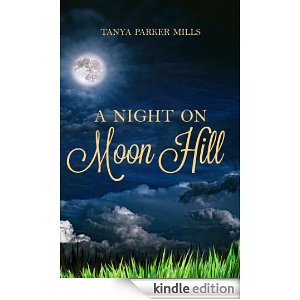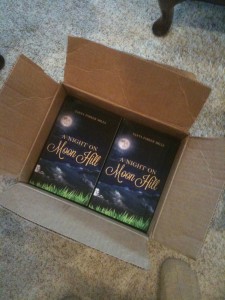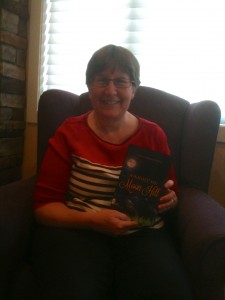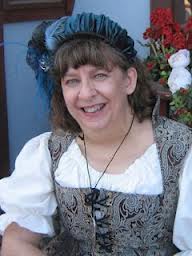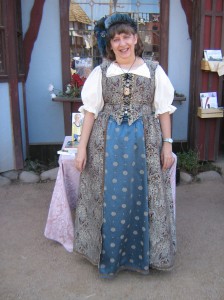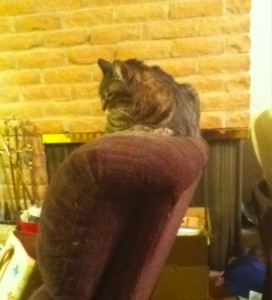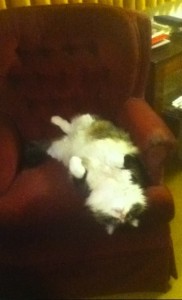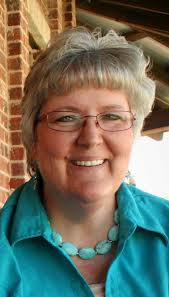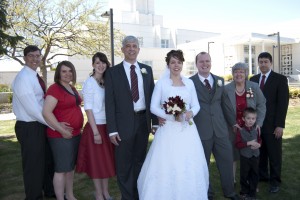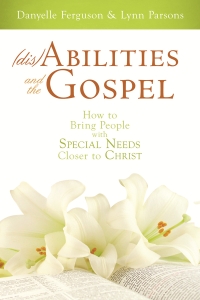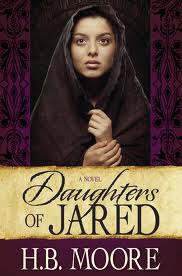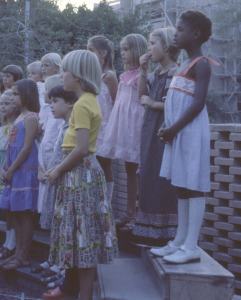(NOTE: TODAY IS THE LAST DAY OF MY CONTEST TO PROMOTE MY NEW BOOK-A NIGHT ON MOON HILL. If you somehow haven’t yet heard about the contest, go here to see the entry details, as well as the 50+ different prizes, and please think about entering. After all, there’s no limit on number of entries and there are many ways to enter. If you’ve already entered, remember that leaving a comment about this interview earns you one last entry!)
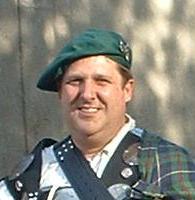
Aye, that lad sporting the kilt (unseen but imagined) and the Tam o’ Shanter, and no doubt well-armed, is none other than C. David Belt, software engineer, Mormon Tabernacle Choir singer, and author of the paranormal vampire series, “The Children of Lilith.” He has offered the first volume of his trilogy, entitled THE UNWILLING, as a prize in my contest.
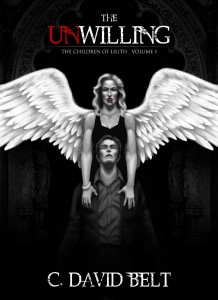
Me: First of all, as someone who grew up overseas myself, I’d be interested in knowing more about your childhood in the Far East and what took your family there.
David: My family moved to the Philippine Islands when I was three. My father was a high school history teacher in the DOD school system on Clark Air Force Base. We lived off-base for a year or so and then moved onto the base. I spent one summer with a Filipino family while my parents were travelling. While I have vivid memories of that summer (riding in jeepnies, butchering chickens), one of the things that impressed me most was the fact that the family had saved for many, many years to be able to travel to New Zealand to be sealed in the temple.
My parents and I travelled all over the Philippines—I met head-hunters!—and visited Thailand and Hong Kong. My most vivid memories of those travels are the elephants, the floating market in Bangkok, feeding bananas to a monkey until he couldn’t eat anymore, and standing on the border of Red China. The military jets flying over Clark and the naval warships at Subic Bay impressed me greatly. Perhaps that’s why I grew up to fly bombers in the Air Force. We returned to the states when I was nine. We travelled on a cruise ship. With all that wonderful food that was available, I remember ordering a ham sandwich for lunch every single day!
(Ah, cruise ships were the best way to return to the States. But don’t get me started…)
Me: Did you write any stories as a child and, if so, can you recall the gist or the subject of your best one?
David: Yes, I’ve been writing stories most of my life. Many of my early ones revolved around superheroes, particularly the Batman. I was particularly proud (at the time) of a werewolf tale. As a teenager, my focus moved to science fiction, including a story that bore a remarkable resemblance to the movie, “Enemy Mine,” decades before that film ever came out. (Hmm…you were either prescient or robbed!)
Me: Okay, how did a guy who graduated with a bachelor’s in Computer Science, served as a B-52 pilot in the Air Force, and now sings with the Mormon Tabernacle Choir end up writing vampire novels?
David: I read Bram Stoker’s Dracula when I was 8 years old. I have read it seven times, almost as many times as I’ve read The Hobbit and The Lord of the Rings. Dracula remains one of my favorite books.
Most of my stories start out as an image in my head, a snapshot, if you will, like a screen-capture from a movie. The image will possess me (or at least haunt me) until I turn it into a story, till I fill in all the backstory. This one started as shot of a dark ordination, dozens of vampires surrounding a mortal man, turning him into a vampire against his will. In this snapshot I knew the vampires could not and would not convert anyone without his consent. I knew that vampirism (in the context of the image) had to be a choice. Eternal damnation cannot be forced on someone. You can be seduced into evil, but nobody can take away your salvation. I love a good vampire story, but the idea of forced damnation always bothered me. It took me ten years to get started, because I couldn’t work out how the hero could be forcibly changed if he did not choose it. I was also trying to write it as a main-stream (i.e., non-LDS) story, but it was too tied up in agency and the atonement for me to separate it in a way that made sense, in a way that was honest. When I finally gave in and made Carl LDS, everything snapped into place.
Me: Another LDS author I know, Michael Young, also sings with the Tabernacle Choir. Do you guys ever talk about writing, maybe swap manuscripts for editing?
David: Yes! All the time. We have a small MTC-Writers group on Facebook. (Okay, as a missionary mom, you confused me for a minute there . . . MTC . . . Mormon Tabernacle Choir, got it.) We get together and swap stories, manuscripts, etc. We proofread manuscripts, bounce ideas off one another. All our conversations revolve around writing. (And here I thought all they did was sing in their spare time. How many more MTC writers are there?)
Me: With your day job as a software engineer, when and where do you do most of your writing? Please describe your writing space (and provide a picture).
I jot down ideas or bits of dialogue on the back of Choir announcements during rehearsals (Can you imagine what the custodians must think if David ever leaves any of his notes behind accidentally?) I get some of my best ideas while sitting in the Choir loft between songs, gazing at the vaulted space of the Tabernacle or the Conference Center.
I DO have an office at home where I do a good portion of my writing (as well as some programming). There I am surrounded by my sword and armor collection (as well as toy spaceships).
(Check it out. He provided several pictures. Talk about a lot of armor! More about that in a minute.)
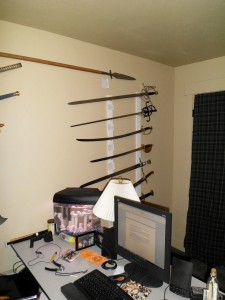
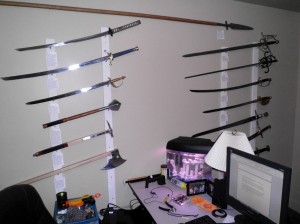
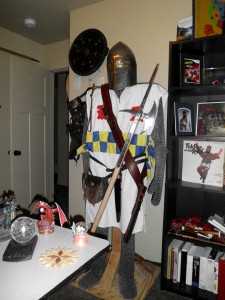

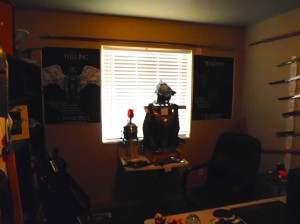
Me: It’s apparent you have quite the collection of medieval weapons and armor (Joyce DiPastena, eat your heart out), with an emphasis on Scottish swords. What do Scottish swords have that others don’t? And have you given any thought to writing in another genre . . . say, historical fiction?
David: I started collecting swords twelve years ago. Most of the pieces that I acquired happened to be Scottish, but I couldn’t have told you why I was attracted to those pieces, other than I have always been fascinated with history. As I became more and more involved in my own genealogy, however, I discovered that better than 80% of my ancestral lines are Scottish. I like to think that this was the connection, at least on a sub-conscious level.
Swords figure prominently in the vampire trilogy, and I drew inspiration from specific pieces that I own and/or wish I owned.
Me: I’ve heard of writers with dogs, and writers with cats (like me), but I’ve only met one other writer so far with a parrot (she’s in my writing group). Tell us about Mork, your Eclectus Parrot, and how he helps or inhibits your writing. (And I MUST have a picture of him, preferably jumping on your keyboard as he is wont to do.)
David: Mork is a sweetie, but he is very demanding. We got him as a mate for our female eclectus (who later died). He was three years old and had never been handled. Taming him was a challenge. (He was convinced I was trying to eat him.) I finally just had to let him bite me repeatedly until he was convinced that I was no threat. Now he is very gentle. He allows me to hold him upside-down in the crook of my arm, as if I were holding a baby, or dangling by his tail feathers.
He frequently hangs upside-down in his cage (like a bat). (Ah, a true muse.) He does talk, but rarely when anyone is in the room. When he can hear you in another room, he can be quite chatty (trying to get your attention). He will sometimes sit on my shoulder when I’m writing, but if I’m not paying enough attention to him, he’ll sidle down my arm, slowly climb onto my hand as I’m typing, look at me quizzically, and then jump onto the keyboard. I pick him up and set him back on my shoulder. He squawks his disapproval and then slowly makes his way back toward the keyboard. So he can be a bit of a distraction, but I love having him around. (Now I understand why you write so much at Choir rehearsals.)
By the way, we DO have two cats. They are terrified of Mork.
(And here are pictures of Mork doing precisely what David described. He’s a beauty, but I’ll never complain about my cat, Peach, again.)
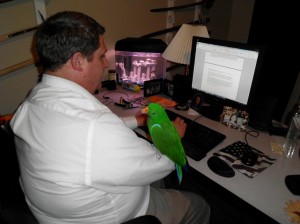
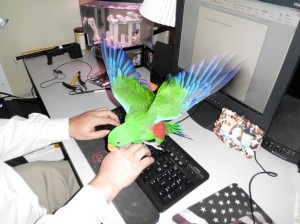
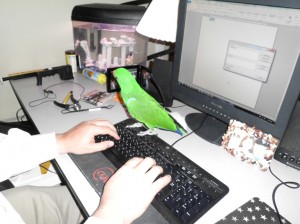
Me: How would you describe your writing process, that is, when Mork isn’t getting in the way?
David: I am very much a discovery writer. I never create an outline. I create a document of notes, character sketches, locations, backstory, plot points that I want to cover (not all of which will make it into the manuscript), etc. For The Children of Lilith, I had to write down exactly how vampirism worked in my mythos, what the rules were, how they could be killed, etc. Then I stew over a starting point, an opening scene. Once I’ve got that in my head, I plunge in. I let the characters drive the story. Often, a character, such as Moira, will speak up in my head and say, “That’s nae what I would say, laddie,” or, “I would nae ever do that,” and the story takes a whole new direction that I wasn’t expecting. (That sounds familiar, though not in that accent.) I know the beginning and the desired ending of the story when I start. The rest just happens along the way.
Me: And what are you working on at present?
David: The vampire trilogy is done (with book 3 in the final stages of editing). I’m currently working on a standalone science fiction novel with LDS themes and a main character who is LDS. Time’s Plague borrows themes for Shakespeare’s “King Lear” and is set roughly a century or so in the future. It starts out on a penal colony on Callisto (one of the moons of Jupiter). The story centers on Edgar, an innocent man, who has been sentenced for life (there can be no parole and no escape from the Hades penal colony) for a murder he did not commit. He was framed by his ex-wife and his best friend. The prison has no warden and is ruled by the prisoners, all of whom are male. It is literally a hellish place populated by murderers and rapists, the worst of the worst. New prisoners and supplies are dropped from orbit and no ship ever lands on Callisto… that is, until a shuttle crash-lands. There is only one survivor—Edgar’s ex-wife, the one person in the universe he hates more than any other. No woman can survive on Callisto. Edgar has to figure out a way to get her off-world and protect her from the other inmates.
Sounds fascinating, doesn’t it? So he is delving into another genre, after all. (Of course, that one bookshelf in his office kind of gave this other passion away.) If you want to know more about David and his vampire trilogy, check out The Children of Lilith website.
One last note. I’ve enjoyed doing these interviews so much that I’ve decided to try to continue with a weekly “Wednesday Writer” conversation. I’m kicking it off with my son this Wednesday. Granted, he’s not published . . . yet. But he’s a writer in development and, besides, I thought you might be interested in his views on A NIGHT ON MOON HILL. After all, he inspired the story.
If any of you authors out there would like to be featured as a “Wednesday Writer” then please contact me at the email address I give on my Contact page here.
Originally posted 2012-09-24 06:00:25.

